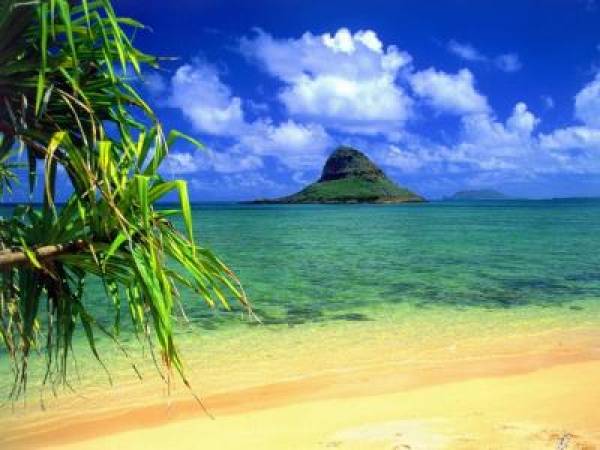Hawaii Wants Gambling to Fuel Economy

HONOLULU (AP) - Hawaii has always been known for its sun, sand and surf. It may soon add another attraction: slots.
Hawaii is one of the last two states with no legalized gambling, but lawmakers facing billion-dollar budget deficits and hunting for ways increase revenue are thinking about allowing casinos in tourist-filled Waikiki or on Native Hawaiian lands.
Proponents say casinos would draw much-needed new money and jobs into the long-troubled, tourism-dependent economy.
Tourists from the mainland would skip Las Vegas to sun on pristine beaches and take a turn at the roulette tables. Coveted high-rollers from Asia could avoid the long trans-Pacific flight, shortening their trip to the slots while also checking out the hula dancing.
And the hundreds of thousands of Hawaii residents who fly about six hours to Vegas would only have to jump in the car or hop a short flight to place a wager. Las Vegas is known around here as Hawaii's ninth island, and hotels in Nevada cater to the state's needs by serving island dishes and dealers wear flora aloha shirts.
"The populace here loves to gamble. Hawaii by nature is a gambling community," said Honolulu resident Ricky Graves, who travels to Las Vegas two or three times a year, but fears that casinos in Hawaii could ruin families by making it too easy for them to gamble away their money.
Gambling opponents are urging state legislators to block casinos so that the islands can maintain their status as a family-friendly destination lacking the serious crime and social problems they say accompanies legalized gambling elsewhere.
"People don't come here to be shut up in a casino to gamble," said Dianne Kay, president of the Hawaii Coalition Against Legalized Gambling. "It would be sad if we destroyed the beautiful ambiance we have here."
Islanders have a long history with gambling, dating back to the days of the Hawaiian kingdom when there was betting on horse racing, said Kale Gumapac, spokesman for the Native Hawaiian group Kanaka Council Moka o Keawe.
And illegal gambling is thriving today, with sports books, cock fighting and card houses the more popular forms. The Internet has also made gaming more accessible.
But the state's natural attractions and its religious missionary history have instilled a sense among many that gambling shouldn't intrude on one of the nation's last holdouts against it. Utah is the only other state where gambling is illegal, though Nevada is just next door.
"People in Hawaii like gambling, but they realize it's not a very good idea to legalize it," said Dennis Arakaki, head of the Hawaii Family Forum and Hawaii Catholic Conference. "Gambling isn't a good way to deal with your financial problems, either personally or as a state."
Police say legal gambling would increase crimes such as prostitution and drug dealing.
It's difficult to quantify the extent of the underground gambling operations, said Maj. Susan Dowsett of the Honolulu Police Department. The department made 40 gambling-related arrests and initiated 65 felony gambling cases in 2009, a fraction of overall arrests.
Gambling supporters dispute claims that legalized gambling would spread crime. They're more focused on the potential for gambling to jump-start the economy, especially if a casino could get running within a year as they claim.
Legislators view gambling as a rare opportunity to raise money without having to hike taxes, although they may not have the votes to override a potential veto. Republican Gov. Linda Lingle has said she opposes the introduction of gambling.
Lawmakers pitch gambling bills nearly ever year, but the measures rarely advance through several committees as they have this year.
One plan would set up a gaming commission to issue one five-year license to a casino on Oahu, which advocates say would create some 4,000 jobs and bring $100 million a year into state coffers through taxes on the casino.
Another would allow casinos on Hawaiian lands, with 80 percent of tax revenues going toward Native Hawaiians. That money could be used for more Hawaiian homes, better health coverage and financing for startup businesses, Gumapac said.
A casino in Waikiki would only need to be allowed under state law. But gambling on Hawaiian lands would be reviewed by the federal government before it could start, according to the U.S. Department of the Interior.
Opening a casino in the tourist-heavy Waikiki would help rejuvenate businesses and create jobs, business owners said.
"If I were a tourist, I'm coming here for the weather, the culture, the sightseeing. But one night I might go to the casino, because what other entertainment is there to do at night?" said James Boersema, an investor of a Waikiki nightclub and restaurant.













